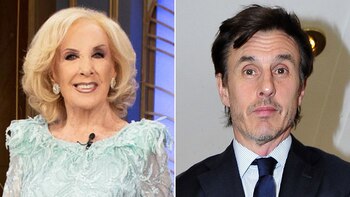
(ATR) Forty-five years since Sapporo became the first city outside of Europe or North America to host the Winter Olympics, the Japanese city on the northern island of Hokkaido welcomes Asia’s top winter sports athletes.
The eighth edition of the Asian Winter Games officially opens on Sunday, Feb. 19 with the opening ceremony and cauldron lighting at the Sapporo Dome. Sapporo is hosting the AWG for the third time, having also been the setting of the first two editions in 1986 and 1990.
Asia’s elite winter sports athletes from 31 countries will compete for medals in 64 events across five sports and 11 disciplines. All Olympic disciplines aside from bobsleigh, luge, skeleton and Nordic combined will be contested at 12 venues.
Never before has an Asian Winter Games received so much attention as Sapporo is an opportunity for growth in winter sports with the next two Winter Olympics in Asia – PyeongChang next winter and Beijing in 2022.
"The Sapporo Asian Winter Games will be a very exciting and significant event for the whole of Asia," said Olympic Council of Asia president Sheikh Ahmad Al Fahad Al Sabah.
"They will take place just one year before the next Olympic Winter Games in PyeongChang, Korea, in February 2018 so will provide the perfect stepping stone and preparation for athletes, coaches and team officials alike."
Adding a new dynamic to the multi-sport Games is that for the first time countries from Oceania have been invited to compete. Athletes from Australia and New Zealand will compete as guests under the Olympic Council of Asia flag, but are ineligible to win medals.
Sheikh Ahmad believes their participation against more established Asian winter sports nations such as Japan, China, Korea and Kazakhstan, among others, will strengthen the unity and solidarity of the Olympic Movement.
"The OCA and Sapporo organisers are delighted to welcome the guest athletes from Australia and New Zealand," said Sheikh Ahmad. "Their participation will add value to the Games and further expand the footprint of Asia, not only in terms of winter sports competition but also for friendship, peace and understanding. All parties will benefit from their presence."
Absent from competition at the previous Asian Winter Games, North Korea and Macau will send athletes to Sapporo.
These Games were originally scheduled for 2015. However, at the OCA’s general assembly in Singapore in July 2009, the committee decided to move the Games to one year before the Winter Olympics moving forward. The previous Games were held in 2011 in Almaty and Astana, Kazakhstan.
The host contract was signed by Japanese Olympic Committee president Tsunekazu Takeda on Jan. 31, 2011, as Sapporo and Obihiro were the sole candidate cities.
Sheikh Ahmad said the OCA is confident that the 1972 Winter Olympics host city will organize a smooth and successful competition with numerous venues from the ’72 Games being used.
"We will be using several of the venues from Sapporo 1972, and their legacy lives strong among the winter sports enthusiasts of Sapporo, Hokkaido and Japan," said Sheikh Ahmad.
"The OCA’s 8th Asian Winter Games will add to this legacy, and further cement Sapporo’s reputation as a top-class winter sports hub in Japan, Asia and the world."
The Games motto is "Beyond Your Ambitions".
Twelve competition venues will host action, with 11 in Sapporo and speed skating at Obihiro, 200 kilometers (124 miles) from the host city.
Anticipation and the potential success of the Games take on added significance as rumors persist that Sapporo and the JOC may still bid for the 2026 or 2030 Winter Olympics.
Around the Rings staff will be onsite at the Sapporo Games kicking off full coverage on Saturday.
Sapporo 1972
Japan had never won a Winter Olympics gold medal until Sapporo 1972 when three Japanese ski jumpers swept the medals in the normal hill event at Miyanomori Ski Jump Stadium.
Yukio Kasaya won gold, Akitsugu Konno silver and Seiji Aochi bronze on what was arguably the proudest day in Japanese winter sports history.
The Games were officially opened by Emperor Showa on Feb. 3, 1972 at Makomanai Stadium. More than 1,000 athletes from 35 nations competed in 35 medal events across 10 disciplines in six sports.
Controversy erupted three days before the Sapporo Games as IOC president Avery Brundage threatened to disqualify 40 alpine skiers who received endorsement deals and were deemed as professionals by the IOC leader. Austrian star Karl Schranz, who received more than $50,000 per year from ski producers was banned by Brundage.
Also, Canada refused to send an ice hockey team, maintaining that professional ice hockey players from Communist nations were allowed to compete without restriction.
The Soviet Union topped the medals table with 16 medals, including eight gold. East Germany was second with 14 medals and Switzerland third with 10.
The development of new infrastructure in the lead-up to the Games proved to be a huge boon for the Sapporo economy. The Japanese national government had invested some $500 million in upgrades, including a new subway.
Games' organizers turned a healthy profit in part because they arranged a record $8.47 million for broadcast rights.
Written by Brian Pinelli
25 Years at #1: Your best source of news about the Olympics is AroundTheRings.com, for subscribers only.
Últimas Noticias
Utah’s Olympic venues an integral part of the equation as Salt Lake City seeks a Winter Games encore

IOC president tells Olympic Movement “we will again have safe and secure Olympic Games” in Beijing

Boxing’s place in the Olympics remains in peril as IOC still unhappy with the state of AIBA’s reform efforts

IOC president details Olympic community efforts to get Afghans out of danger after Taliban return to power

North Korea suspended by IOC for failing to participate in Tokyo though its athletes could still take part in Beijing 2022




